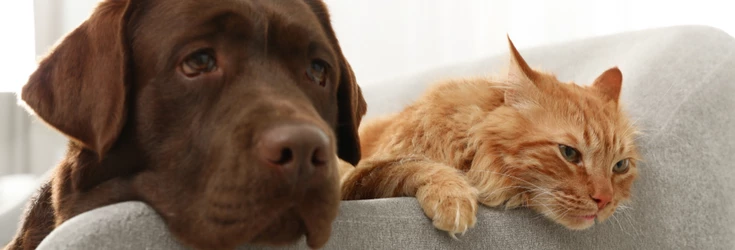Smoking can negatively affect your household pets
Pets play a crucial role in the household.
When it comes to lighting up a smoke, you know how dangerous it is for the humans around you. You understand there are health risks associated.
You may not realize that the risks do not only extend to other people inhaling your secondhand smoke. Did you know that secondhand smoke has the same negative effects on pets living within your home?
The fact is that birds, cats, and dogs can suffer the same negative health consequences as humans when you puff away. So how does second-hand smoke influence your pet’s lives? Before answering the question, you need to first understand what secondhand smoke is.
Secondhand Smoke
As a smoker, you are inhaling firsthand smoke into your lungs. However, the smoke the person or animal close to you inhales is secondhand smoke.
The smoke comprises of two sources the smoke produces by theburning end and the smoke exhaled by the smoker. However, why is that smoke is such a big concern?
A fact is that tobacco contains thousands of chemicals that are toxic. As you smoke and breathe in the vicinity as a smoker or non-smoker,both become exposed to the compounds. Therefore, it may affect other people but also affects your pets.
What are the effects on your pets?
When it comes to humans, second-hand smoke causesrespiratory problems that range from coughing to sneezing. In some severe cases, it causes shortness of breath or asthma.
On the other hand, it also causes respiratory infectionslike bronchitis or pneumonia and extends to heart disease, lung cancer, or astroke.
The fact is that all of the above leaves your pets at risk of getting the same health problems. You will find that your dog has moreallergies, eye infections, and even gets lung cancer. A study done by the Colorado State University found that dogs inhaling secondhand smoke got nasal cancer.
The form of cancer they found present in long-nosed dogs compared to short-nosed dogs that get more lung cancer. The reason why long-nosed canines are at risk of nasal cancer is that the inhaled particles are trapped in their nasal canals.
The toxins in tobacco accumulate in their nasal mucus, leaving the latter with a higher risk of getting a tumor in their snouts. Furthermore, cats are also more inclined to develop lung cancer as they have short noses. On the other hand, felines also develop lymphoma and lead to death.
The reason for this is that cats groom themselves and start developing tumors in the mouth as they lick the toxic particles on the fur. Also, they suffer from thirdhand smoke as the residue of smoke clings to furniture and rugs as well.
One more pet, which is affected the worst by secondhandsmoke, is birds. The bird’s respiratory system is sensitive to any pollutantsin the air. Birds develop pneumonia as well as lung cancer. What’s more, yourfeathered pet has a risk of heart failure, skin, and eye irritation.
Become Motivated and Quit
If your dog or cat is hungry, you will put down your knife and fork to fill up his or her bowl. If they need to go outdoors, we will stop watching our favorite show to take them outside for awalk.
Therefore, they motivate us to keep moving to live a healthier life. Therefore, if you think about it, the above reasons should giveyou enough motivation to stop smoking as well.
While secondhand smoke is harmful to their health, you are more at risk of getting the same ailments as a firsthand smoker. So kick thehabit now and live your life risk-free without smoke.
Yes, we know it is hard to do but instead of taking yoursmoke break outside or installing special filters that do help start getting motivated for your pet’s sake and quit.
Start your quit journey with us today!

